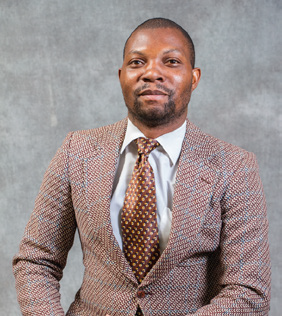Our memories can never forget that fateful day in the Eastern Highlands when a thick cloud of grief gripped the Chimanimani community due to the ravaging effects of cyclone Idai in the year 2019. Thereafter, government, development partners, companies and well-wishers have been working together to facilitate disaster recovery efforts.
At the time of its occurrence, the natural disaster shattered the hopes of the community destroying infrastructure and also claiming human life. It is considered by scientists as the most devastating cyclone to ever affect the Southern Hemisphere. Zimbabwe and Mozambique, the countries seriously affected, have both been making steady progress and strides to ensure recovery.
Although cyclones occur naturally in geographical time and manifest themselves in heavy rainfall and extreme and violent winds; it is proven that the recent cyclones can be attributed to climate change. Infrastructure and vegetation can be seriously compromised whereas human life is lost during cyclones.
The Government of Zimbabwe, Civil Protection Unit, United Nations, Development partners, private companies and other key stakeholders were present to assist in the vicinity of the cyclone in order to facilitate rescue operations and now the focus is on the rebuilding. Furthermore, a collaborative approach was adopted by stakeholders to ensure that affected families got relief, food, shelter and clothing at the time of emergency. In recent months focus has also been put to step up reconstruction of the affected areas and bring the community back to normalcy.
Disasters come and go and as a nation what is now key is to see how to rebuild and recover from the catastrophe. It is recommended that as a country we strengthen infrastructure towards resilient infrastructure that can withstand the extreme events. There are times of course where infrastructure will succumb whether strong or not, but there is opportunity for improving existing frameworks. This may entail strengthening existing building codes to enhance climate resilient infrastructure. Partnerships and collaborations will also enhance our resilience to disasters. Investment and research in early warning systems is also an opportunity that can be pursued to strengthen disaster preparedness at community level.
At an international level there is the Sendai Framework on Disaster Preparedness. The Sendai Framework replaced the Hyogo Framework. These frameworks are very useful in the face of potential and imminent disasters. As we recover from the debilitating effects of the cyclone, let us also adopt some of the strategies that have been proposed in the global frameworks as we deal with the natural disasters in an ever changing climate. The path to recovery is possible through multi-stakeholder partnerships.
Author
-

Tawanda Collins Muzamwese is the Editor in Chief of the Green Business Gazette Magazine. He is is an international consultant in sustainable business development with massive experience in training, consulting and auditing. He has facilitated capacity development in more than 100 enterprises drawn from over 30 countries. He is the founder of the sustainability think-tank called Toxiconsol Consultancy t/a African Sustainability Consultants. He is the Editor in Chief of the Green Business Gazette Magazine. He is a consultant and business coach with over 13 years experience. Tawanda is a Management Systems Consultant working on promoting development and implementation of ISO Standards (ISO 14001:2015, ISO 9001:2015 and ISO 45001:2018) in both developed and developing countries. With his inspirational and pragmatic writing style he has written cutting edge books including: 1) How to grow a Side-hustle into a viable business - Overcome Salary Dependency 2) The Leading Consultant: How become an authority in your professional field 3) Step-by-Step Guide to implementing Safety, Health, Environment and Quality Management Systems 4) Stepping on Higher Perspectives: Greatness Tips Motivational Series 5) Sustainability Guidebook for Boards and CEOs: Leading from the front Tawanda writes about sustainability, motivation, safety, health, environment and quality management. His books are relevant to both developed and developing countries. With practical approaches and case studies, he provides incisive insights into entrepreneurship. His philosophy is based on the premise that every human being has potential to make a significant difference in their lifetime. He writes books on taking personal responsibility for progression in life. He motivates entrepreneurs to implement income generating projects and determine their own financial destiny. He also motivates companies to take up sustainability initiatives. A start-up coach, public speaker, environmentalist, safety, health and quality management expert, Muzamwese bridges the gap between theory and practice through building capacity and sharing practical case studies in his books.
View all posts



